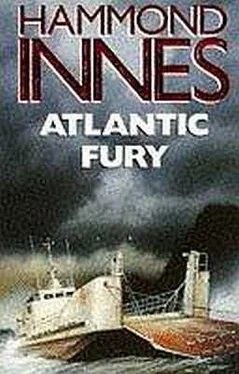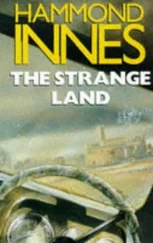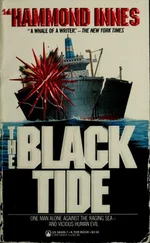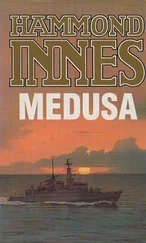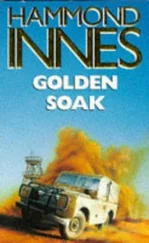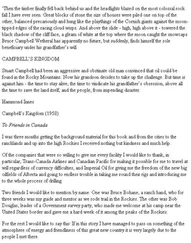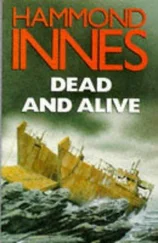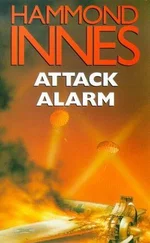Hammond Innes - Atlantic Fury
Здесь есть возможность читать онлайн «Hammond Innes - Atlantic Fury» весь текст электронной книги совершенно бесплатно (целиком полную версию без сокращений). В некоторых случаях можно слушать аудио, скачать через торрент в формате fb2 и присутствует краткое содержание. Жанр: Морские приключения, на английском языке. Описание произведения, (предисловие) а так же отзывы посетителей доступны на портале библиотеки ЛибКат.
- Название:Atlantic Fury
- Автор:
- Жанр:
- Год:неизвестен
- ISBN:нет данных
- Рейтинг книги:3 / 5. Голосов: 1
-
Избранное:Добавить в избранное
- Отзывы:
-
Ваша оценка:
- 60
- 1
- 2
- 3
- 4
- 5
Atlantic Fury: краткое содержание, описание и аннотация
Предлагаем к чтению аннотацию, описание, краткое содержание или предисловие (зависит от того, что написал сам автор книги «Atlantic Fury»). Если вы не нашли необходимую информацию о книге — напишите в комментариях, мы постараемся отыскать её.
Atlantic Fury — читать онлайн бесплатно полную книгу (весь текст) целиком
Ниже представлен текст книги, разбитый по страницам. Система сохранения места последней прочитанной страницы, позволяет с удобством читать онлайн бесплатно книгу «Atlantic Fury», без необходимости каждый раз заново искать на чём Вы остановились. Поставьте закладку, и сможете в любой момент перейти на страницу, на которой закончили чтение.
Интервал:
Закладка:
The night was both wet and cold and I went to sleep with the sound of the waves sloshing among the seaweed that clothed the rocks, and in the morning I started to walk to Northton. Just beyond the church a girl in a small estate car stopped and offered me a lift. She wore a faded green anorak with the hood pushed back and her face had the freshness of the islands; a dark, wind-browned face and bright blue eyes. ‘You must have had a very uncomfortable night,’ she said as we drove up the glen. Her voice was soft and that, too, belonged to the islands. ‘Why didn’t you come to the hotel?’ Something about the way she said it, the quick, almost hostile glance she gave me — it was almost as though she resented the presence of a stranger.
But my attention was concentrated on her features, which were unusual; the dark colouring, the wide mouth below the strong, slightly beaky nose. I knew there were islands up here where Nordic blood had mixed with the Celt to produce blue eyes and dark hair and skin, and because it interested me, I said, ‘You’re an islander, aren’t you?’
‘I live here.’
‘No, I meant you come from one of the islands up here.’
‘My father does.’ The blue eyes staring at me and again that sense of hostility. ‘I’m Marjorie Field.’ She said it defiantly, adding that she worked part-time at the hotel. She seemed to expect some reaction from me, and then she began asking me a lot of questions — my name, where I had come from, how long I intended to stay. At the time I put it down to the natural curiosity about strangers in an isolated community.
The fact that I was an artist seemed to surprise her. ‘You mean you paint — for a living?’ We were at the top of the glen then and she concentrated on her driving until the road straightened out, running down to the flat desolation of buildings scattered round marsh and loch; ugly modern dwelling houses, impermanent-looking against the misted bulk of the hills beyond. ‘Artists don’t come here at this time of the year,’ she said quite suddenly. ‘And they don’t live in tents, Mr Ross — not when it’s cold and wet.’
‘Do you know many artists?’ I asked.
‘A few.’ She was tight-lipped now, her manner cold, and I had a feeling she didn’t believe me. We drove through Leverburgh in silence. This, according to my guide book, had been the village of Obbe until Lord Leverhulme renamed it as part of his grandiose scheme for making it the centre of the west coast trawler fleet. Beyond the village she turned to me and said, ‘You’re a newspaper man, aren’t you?’ She said it flatly, in a tone almost of resignation.
‘What makes you think that?’
She hesitated, and then she said, ‘My father is Charles Field.’ She was watching me out of the corner of her eyes and again she seemed to expect some reaction. ‘He’s the Education Officer at Northton.’ And then she slowed the car and turned her head. ‘Please. Won’t you be frank? You haven’t come up here to paint. It’s something else — I can feel it.’
Her reaction was disturbing, for this was something more than ordinary curiosity. We had reached the top of the next glen and there was the sea and a cloud-capped mountain, half-obscured by rain. To distract her I asked, ‘Is that Toe Head?’
She nodded. ‘The hill is called Chaipaval.’ It seemed bedded on sand, for the tide was out and the bay to the north was a dull, flat gleam running out to dunes. Dunes, too, formed the neck of land that made Toe Head a peninsula. But much of the sand-bunkered area had been bulldozed flat to make a camp and a landing place for helicopters. Seaward of the camp was a wired-off enclosure with blast protection walls. The whole effect — the tarmac apron, the tight-packed ranks of the hutted camp, the flat square of the launching pad — it was raw and violent, like a razor slash on an old oil-painting. ‘And that’s the rocket range, I suppose?’
She nodded. ‘Surprised?’ She gave me a quick, rather hesitant smile. ‘It always seems to surprise people. They’ve read about it in the papers, but when they actually see it …’
And she added, ‘Of course, being near the road, it’s much more obvious than the old range down on South Uist.’
In a few minutes now we should be at the camp. ‘Has a Major Braddock been posted up here?’ I asked.
She nodded. ‘He arrived a few days ago.’ And after a moment she said, ‘Is that why you’re going to Northton?’
‘Yes,’ I said. ‘I’m hoping he’ll be able to get me across to Laerg.’
‘Laerg? Then it isn’t my father… You really are a painter.’ She gave a quick, nervous little laugh — as though laughing at her own foolishness. ‘I’m sorry, but, you see, we get so few people at Rodil — only fishermen, a few tourists, the occasional bird-watcher. Why aren’t you in the Mediterranean, somewhere warm and sunny? I never knew an artist come to the Hebrides, not for the winter.’ Her voice ran quickly on as though by talking she could conceal from me that the presence of an unexpected visitor had scared her. ‘You’re Scots, aren’t you? Perhaps that explains it. But an artist wanting to go to Laerg — it’s so unusual. And the birds will have flown. No gannets or puffins. They’ve all left now. What are you going to paint?’
‘The island,’ I said. ‘Laerg as the islanders knew it at the worst time of the year.’
She nodded. ‘I’ve never seen it. But Mike says it can be very beautiful, even in winter.’
We were in Northton now and I could see what it had been before the Army had come, a line of small crofts clinging to an old existence in a land as old as time. It was an anachronism now, pitiful-looking against the background of the camp with its fuel dump and its M.T. workshops and the barrack lines of its huts. ‘Where will I find Major Braddock?’ I asked.
‘His office is in the Admin, block. But he may not be there. He’s supposed to be flying to Laerg today.’ She drew up at the main gate where the model of a rocket stood and a notice board read: Joint Services Guided Weapons Establishment. ‘The Admin, block is down there on the left,’ she said. I thanked her and the little estate car drove off along a concrete roadway drifted with sand that led to another part of the camp.
There was no guard on the gate. I simply walked straight in. The huts stretched in two straight lines either side of a concrete road; sand everywhere and the rain driving like a thick mist. A staff car and two Land-Rovers stood parked outside the Admin, block. There was nobody about. I went in. Still nobody, and a long passage running the length of the hut with glass-panelled doors to the offices leading off it. I walked slowly down it, feeling oddly nervous, conscious of being an intruder in a completely alien world. Small wooden plaques announced the contents of each closed box of an office: RSM — W. T. Symes; Commanding Officer — Colonel S. T. Standing; 2nd-in-Command — Major G. H. Braddock, (this lettered in ink on a paper stick-on); Adjutant — Captain M. L. Ferguson.
I stood for a moment outside Braddock’s door, unwilling now to face the awkwardness of this moment. Lane and his snapshots seemed a whole world away and I felt suddenly foolish to have come so far on such an errand. How could the man possibly be my brother after all these years? But I had an excuse all worked out, the excuse that I wanted to visit Laerg. He could only refuse and at least I’d know for certain then. I knocked on the door. There was no answer. I pushed it open. There was nobody inside and I had a feeling of relief at the sight of the empty desk.
There was a sliding hatch in the partition that separated this office from the adjutant’s and I could hear a voice talking. But when I went into the next office Captain Ferguson was alone at his desk. He was speaking into the telephone. He wore battledress, a ginger-haired youngster with a square freckled face and a Scots accent that took me back to my Glasgow days.
Читать дальшеИнтервал:
Закладка:
Похожие книги на «Atlantic Fury»
Представляем Вашему вниманию похожие книги на «Atlantic Fury» списком для выбора. Мы отобрали схожую по названию и смыслу литературу в надежде предоставить читателям больше вариантов отыскать новые, интересные, ещё непрочитанные произведения.
Обсуждение, отзывы о книге «Atlantic Fury» и просто собственные мнения читателей. Оставьте ваши комментарии, напишите, что Вы думаете о произведении, его смысле или главных героях. Укажите что конкретно понравилось, а что нет, и почему Вы так считаете.
